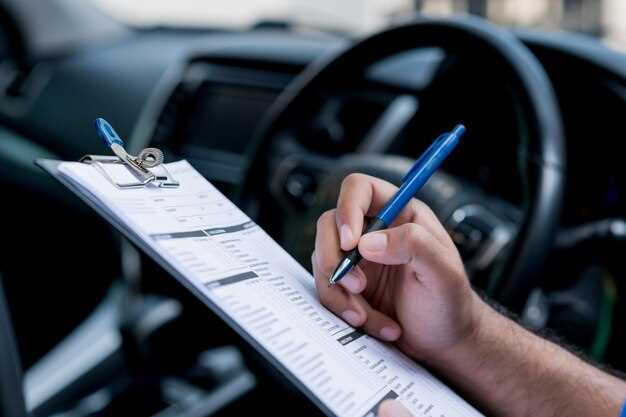
Buying a used car can be both an exciting and daunting experience. With countless options available, it’s crucial for buyers to approach this process with a well-thought-out checklist to ensure they make an informed decision. Having a comprehensive list of criteria and steps to follow can significantly simplify the selection process and help avoid potential pitfalls.
The car market is filled with vehicles of varying conditions, histories, and prices. Understanding what to look for before making a purchase is essential for anyone aiming to get the best value for their money. Throughout this article, we will provide a detailed checklist designed specifically for smart buyers, covering key factors such as vehicle history, mechanical integrity, and cost considerations.
By adhering to this checklist, buyers can equip themselves with essential knowledge and take proactive steps that lead to a satisfying purchase experience. Let’s dive into the essential elements every smart buyer should consider when shopping for a used car.
Key Questions to Ask the Seller Before Buying

When considering a used car purchase, it’s essential to ask the right questions to ensure you make an informed decision. Here’s a checklist of key questions that will help you evaluate the vehicle and the seller’s honesty.
- What is the car’s history?
- Ask for a vehicle history report. Does it include any accidents, title issues, or previous recalls?
- Inquire about previous ownership. How many owners has the car had?
- Why are you selling the car?
- This can reveal potential issues or the seller’s motivation.
- Ensure the reason for selling aligns with the vehicle’s condition.
- What is the current mileage?
- Verify that the mileage is consistent with the vehicle’s age and usage.
- Ask about any significant mileage fluctuations that may raise red flags.
- Has the car been regularly serviced?
- Request service records. Are the records complete and up to date?
- Check if major components like the timing belt have been replaced according to schedule.
- Are there any known mechanical issues?
- Inquire about any repairs or problems the seller has experienced.
- This can provide insight into potential issues you may face later.
- Can I take the car for a test drive?
- Ensure you test the car in various conditions such as acceleration, braking, and turning.
- Pay attention to any unusual noises or performance issues.
- What is the asking price, and is it negotiable?
- Research the market value of similar cars to ensure the price is fair.
- Don’t hesitate to ask if the price can be adjusted based on your findings.
Using this checklist of questions will help ensure that you thoroughly evaluate both the car and the seller, ultimately leading to a smarter and more confident purchase.
Critical Inspection Steps for Evaluating the Car’s Condition
When purchasing a used car, a thorough inspection is essential to ensure you are making a sound investment. Follow this checklist to evaluate the vehicle’s condition effectively.
First, examine the exterior of the car. Check for any signs of rust, dents, or scratches on the body. Look closely at the paint quality, as inconsistent coloring may indicate repairs from accidents. Ensure that the panels line up correctly, as misalignment could suggest previous collision damage.
Next, inspect the tires. Assess their tread depth and look for uneven wear patterns, which could indicate alignment issues. Be sure to check the condition of the spare tire and the tools provided for changing it.
Open the hood and look at the engine. Check for any leaks, corrosion, or loose wires. Inspect the oil level and condition; it should be a clear gold or brown color. Dark or sludgy oil can signal poor maintenance. Additionally, ensure all fluid levels–coolant, brake, and transmission–are within the recommended ranges.
Move on to the interior of the car. Check the upholstery for any stains, tears, or excessive wear. Test all seat adjustments and ensure seatbelts function properly. Functionality of controls is crucial; test the air conditioning, heating, and multimedia systems to confirm they operate correctly.
Finally, take the car for a test drive. Pay attention to the handling, braking, and acceleration. Listen for any unusual noises while driving. A successful test drive will help you gauge the overall performance of the vehicle.
Following this checklist will give you critical insights into the used car’s condition, aiding you in making an informed purchasing decision.
Financial Considerations and Negotiation Tips for Smart Deals

When purchasing a used car, understanding your financial situation is crucial. Begin by determining your budget, taking into account additional costs such as insurance, taxes, registration, and potential maintenance. This will help you establish how much you can afford to spend without compromising your financial health.
Next, secure financing options before visiting dealerships. Research various lenders, including banks and credit unions, and obtain pre-approval for a loan. This empowers you to negotiate from a position of strength, knowing your maximum financing limits and interest rates. Additionally, check your credit score; a higher score could qualify you for better loan terms.
Perform thorough research on the used car market to understand fair prices for the models you are interested in. Utilize online resources such as pricing guides and vehicle history reports to establish a realistic price range. Being knowledgeable about the car’s value provides leverage during negotiations.
During the negotiation process, start with a lower offer than the asking price to leave room for negotiation. Be prepared to justify your offer with data gathered from your research. Highlight any observed flaws or needed repairs that could affect the vehicle’s value to strengthen your bargaining position.
Stay calm and focused during negotiations. Do not rush into a deal; take your time to reflect on offers and counteroffers. Ensure you are satisfied with the final price and terms before agreeing. Remember to confirm all details in writing to avoid misunderstandings later.
Lastly, be prepared to walk away if the terms do not meet your expectations. Often, this can prompt the seller to reconsider the offer. A smart buyer knows the value of patience and the power of negotiation to secure a fair deal on a used car.



